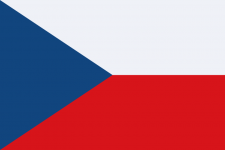
From July, changes to refugee accommodation support and the calculation of humanitarian financial support in the Czech Republic - defined in the legislative amendment known as "Lex Ukraine V" - will come into force. These changes will affect a significant number of refugees from Ukraine.
Changes to accommodation support
As of 1 July, housing in state humanitarian accommodation will only be free of charge for a maximum of 150 days after temporary protection is granted, meaning that many refugees from Ukraine will be required to find new accommodation. After the first 150 days, only so-called vulnerable groups (children aged under 18; students aged under 26; carers of a child aged under 6; pregnant women; people aged over 65; disabled people; carers of disabled people) will be entitled to free housing: others will be required to pay.
The amount of financial support granted to refugees living in flats is changing: it will now be determined according to whether the flat is listed in the national housing register, created by the Ministry of Labour for this purpose. This brings to an end the lump-sum "solidarity support" previously granted to Czech households that accommodate those from Ukraine for free.
Change to the calculation of the humanitarian financial support
Humanitarian financial support will now be calculated individually by household, taking into account the household's employment income, bank account balance, the subsistence minimum and the lump sum housing allowance received.
Associated risks
NGOs and the Ministry of Labour itself have warned of certain risks associated with these changes. Households in state accommodation are often mixed (including both vulnerable and ´non-vulnerable´ persons), and the high cost of rent for 'non-vulnerable' persons combined with the fact that they will have to pay this rent with their humanitarian support payment means that whole households may risk losing their housing. Refugees face massive housing shortages and extreme poverty, often moving into assistance centres (particularly in Prague), and returning en masse to Ukraine.
Municipalities may face increased pressure to house people, and - as a result of privatisation - usually have limited options available. The Czech Republic has been facing a housing market crisis for a long time, with housing scarce in large cities in particular, and high rental prices for refugees and Czech citizens alike. The situation is further complicated for refugees by administrative and technical difficulties with the database of people who belong to vulnerable groups.
A solution could lie in making the Czech social welfare support system accessible to refugees from Ukraine. This step was previously considered by the Ministry of Labour but eventually abandoned, as it would have had a significant negative impact on the state budget which is facing a record deficit in 2023.
Details
- Publication dates
- Location
- Country-wide
- Geographic area
- Czech Republic
- Source
- Posted by
